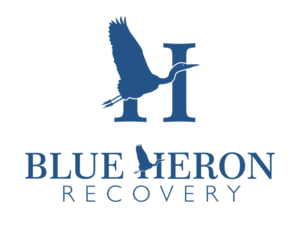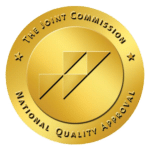Alcohol use disorder (AUD) is a medical condition that affects individuals’ ability to regulate their alcohol consumption, even when faced with negative impacts on their social life, work, or health. This includes the various conditions that individuals may commonly refer to as alcohol abuse, alcohol dependence, alcohol addiction—and the less formal term, alcoholism. AUD can have a profound impact on the brain, leading to long-lasting changes that contribute to its persistence and the ongoing risk of relapse. Fortunately, evidence-based alcohol addiction treatment, along with medication management in certain cases, can assist individuals with AUD in attaining and sustaining recovery.
Understanding Alcohol Addiction
Alcohol addiction is characterized by a persistent pattern of compulsive alcohol consumption, a lack of control over drinking, and the development of negative emotions when alcohol is not accessible. It’s important to note, however, that the effects of alcohol can differ significantly from one individual to another. There are various factors that can contribute to an individual’s risk of developing an addiction to alcohol or other drugs, such as family history, trauma, societal influences, or the presence of co-occurring mental health disorders. As such, it is important to understand that there is no singular path that leads to addiction.
The Need for Personalized Addiction Treatment
Here at Blue Heron Recovery, we recognize and value the diverse experiences that individuals have with alcohol addiction. Many individuals may resort to alcohol or other drugs because of their past experiences, while others may rely on these addictive substances as a means of dealing with current challenges.
It is crucial to match the alcohol addiction treatment modality to the individual in order to achieve the best possible outcome. Comprehensive treatment takes into account all aspects of an individual’s well-being, going beyond solely addressing drug or alcohol abuse. Behavioral therapies, including individual, group, and family approaches, are widely recognized as effective forms of treatment. These therapies may adopt different treatment styles personalized to meet the needs of the individual.
What Approaches Are Used in Alcohol Addiction Treatment?
At Blue Heron Recovery, we utilize a variety of evidence-based approaches within our alcohol addiction treatment program. Three of the most common modalities we use include:
- Cognitive-behavioral therapy (CBT)
- Dialectical behavior therapy (DBT)
- Motivational interviewing (MI)
Cognitive Behavioral Therapy (CBT)
Cognitive behavioral therapy (CBT) is a form of talk therapy that helps individuals understand the interconnectedness of their thoughts, emotions, and actions. This alcohol addiction treatment has proven to be effective for a variety of mental health concerns, including alcohol addiction. Treatment typically focuses on modifying unhelpful mental processes and may include:
- Identifying negative thought patterns that lead to harmful situations
- Learning how to evaluate mental distortions in light of the actual situation
- Developing a greater awareness of others’ behavior and motivation
One of the main objectives of CBT is to promote self-awareness and address unhelpful behaviors while also fostering motivation for positive change and building effective coping strategies. All of these acquired skills are important building blocks that add to the effectiveness of alcohol addiction treatment.
For individuals who rely on alcohol as a way to cope or distract themselves, CBT can provide valuable support in redirecting the unhelpful thoughts or behavioral patterns that have influenced their drinking habits. CBT can help individuals struggling with alcohol addiction develop healthier coping mechanisms and behaviors to maintain a sober lifestyle.
Dialectical Behavior Therapy (DBT)
Dialectical behavior therapy (DBT) is a therapeutic approach that helps individuals comprehend their emotions while equipping them with the necessary tools to effectively regulate them. DBT emphasizes the emotional and social dimensions of life, building upon the foundation of CBT.
DBT for alcohol addiction treatment is centered around supporting individuals in transforming their behaviors. In DBT, therapists work with the individual to look at relapse as a challenge to address, evaluate the triggers that lead to relapsing behavior, and develop a strategy for overcoming these issues.
DBT focuses on building practical skills to manage emotions and handle difficult situations. Here are some skills that can be helpful for individuals struggling with alcohol addiction:
- Dialectical abstinence – Dialectical abstinence emphasizes the importance of complete abstinence as the primary goal while also recognizing the need for a thoughtful approach to returning to abstinence in case of relapse. It presents a “slip” as an opportunity for growth and improvement rather than as a setback.
- Clear mind – DBT emphasizes the importance of cultivating a clear mind, which involves finding a balance between the “addict mind” and the “clean mind.” You approach your recovery with a thoughtful and vigilant mindset, always mindful of potential triggers and taking necessary steps to prevent relapse.
- Adaptive denial – This skill in DBT involves convincing yourself that you don’t want to engage in an addictive behavior. During alcohol addiction treatment, adaptive denial involves intentionally denying that you want a drink and actively convincing yourself that you want something different.
Motivational Interviewing (MI)
Motivational interviewing (MI) is a counseling method that helps people resolve deeper issues to find the internal motivation to change their behavior. It is based on the belief that a person becomes more motivated to change once they see the mismatch between where they are and where they want to be.
If you’re struggling with alcohol addiction and feel unsure about the benefits of making changes or not quite ready to change at this point in time, MI can help guide you toward clarity or motivation.
The goal of MI is to help clients develop a positive attitude towards change. This is done by establishing a supportive relationship between the therapist and the client. Here are a few examples of open questions that can be useful during therapy:
- “What don’t you like about the effects of drinking?”
- “What changes would you like to see in your life one year from now?”
- “What do you want to achieve from this program?”
Explore Effective Alcohol Addiction Treatment in San Antonio, TX
Alcohol addiction has a profound impact on individuals and their loved ones, causing significant life changes. Recovery is within reach through a dedicated alcohol addiction treatment program that understands and addresses your individual needs, providing top-quality care.
If you or someone close to you is facing challenges with alcohol addiction, it is important to reach out to professionals who can provide the support and care you deserve. Blue Heron Recovery provides a comprehensive addiction treatment program in San Antonio, TX that incorporates evidence-based therapies personalized to meet your unique challenges and goals.
At Blue Heron Recovery, our utmost priority is to help you overcome addiction and lead a meaningful, sober life. Call us now at (210) 588-0508 to book a consultation and start your path towards healing.





